The Village Loudspeaker: What’s happened to truly local radio?
- Published
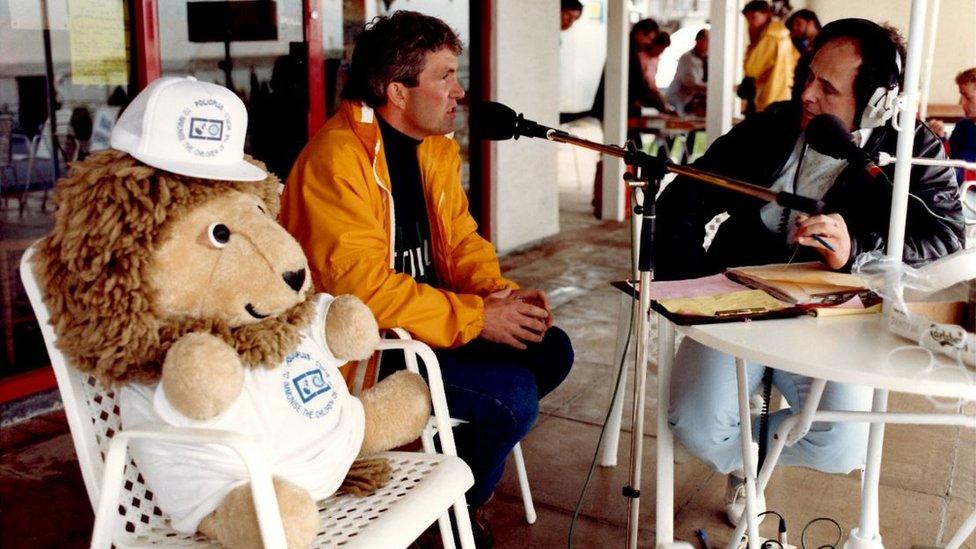
Plymouth Sound once reached two thirds of the city's radio listeners
With half of all local commercial radio stations in the UK now owned by three companies, and national programmes increasingly replacing regional ones, the future of truly local radio is looking uncertain.
In 20 years, local listening has gone from 40% of the market to less than 25%, and many stations have disappeared or been absorbed into consolidated "network centres".
Last year, 36 local commercial breakfast shows were replaced with two national programmes, and 10 entire regional sites closed completely.
"We've seen a lot of local radio presenters lose their jobs and it's quite a sad situation around the country," says Stuart Clarkson, deputy editor of RadioToday., external
He estimates that more than 250 presenters will lose their jobs as a result of national programming replacing local broadcasting as the industry continues to shrink.
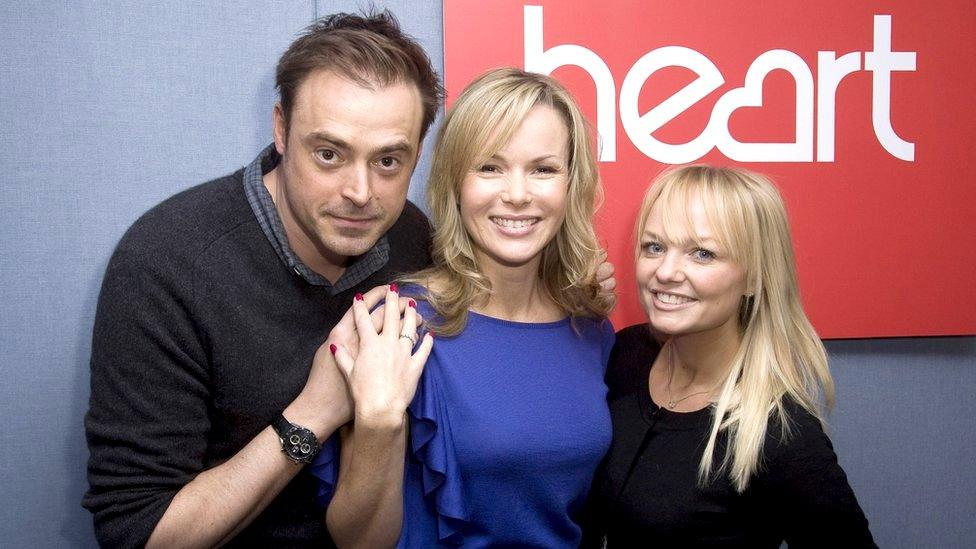
Heart features national stars like Jamie Theakston, Amanda Holden and Emma Bunton
"Things have changed a lot socially as well," Mr Clarkson says. "These days people listening to the radio tend to want to hear music. Local radio is less important now and I think with the change we've had in social media people get their information and local content from different places."
He said more and more "heritage" names in broadcasting are being replaced with large brands like Heart, Capital and Smooth.
"So Jamie Theakston and Amanda Holden are on local radio stations around the country," he added.
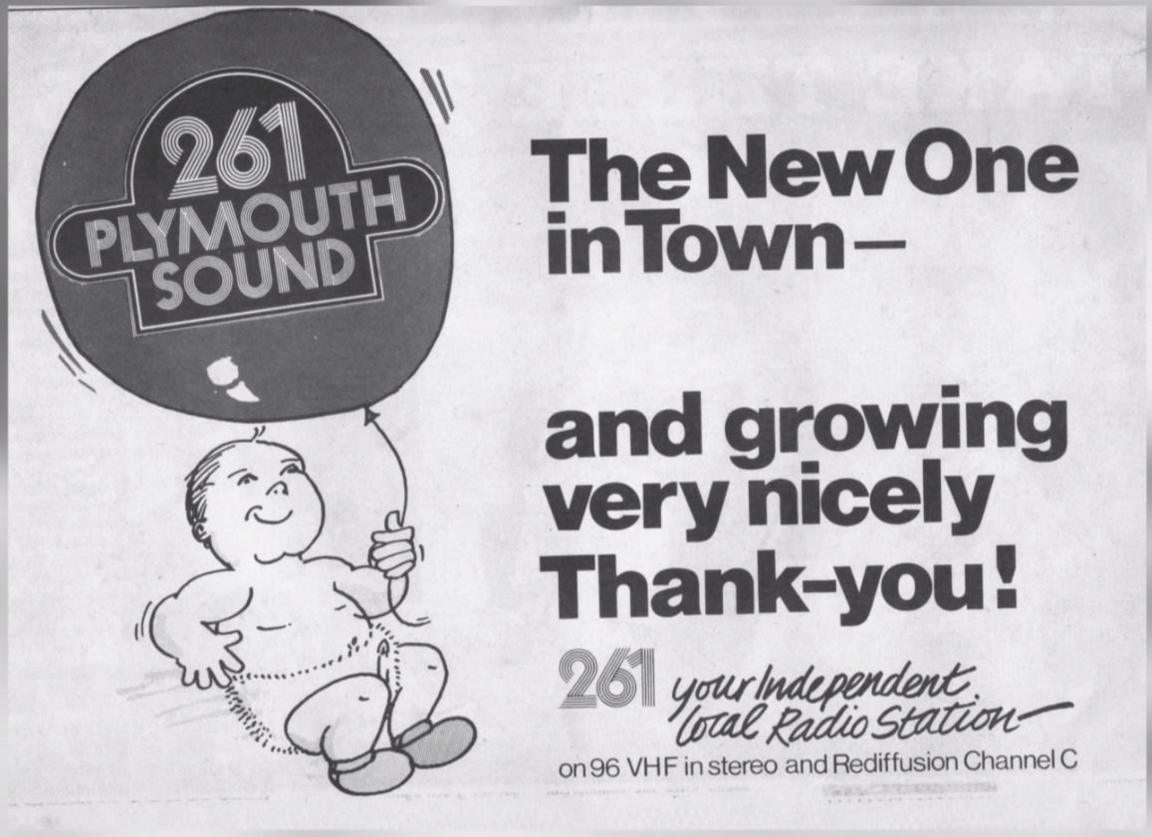
Plymouth Sound Radio closed its local studios in August 2010
One of the most successful stations in the independent local radio marketplace was Plymouth Sound, which at one point reached 63% of the city's population.
The station's controller was Louise Churchill, who also presented a phone-in for nearly two decades. She says their philosophy was "to be for the community, with the community and about the community".
"You had the chance to phone the station and express your view on the government or the council, or the local golf club… and you would be heard all over the city," she adds.
Presenter Ian Calvert says the station's team also lived locally. "We knew every road, we knew most people who owned stores, shops and pub landlords. It was like Emmerdale or Dibley."
He adds that at the height of the station's popularity "it went crazy, it was like pop-star stuff" but "those days are gone".
Ian Calvert (centre) said some presenters were treated like pop stars
Over the years that followed its successful launch in 1975, Plymouth Sound Radio changed owners, became less local, and was rebranded to Heart in 2009.
The station eventually closed its local studios in August 2010, and its fate is one that has befallen many stations around the country.
Technology has allowed radio groups to consolidate their assets and broadcast from large network centres, such as those operated today by Global Radio in London and the Bauer Media Group in Manchester.
These provide mostly national programmes, with some local content to fulfil relaxed local and regional requirements, external from Ofcom.
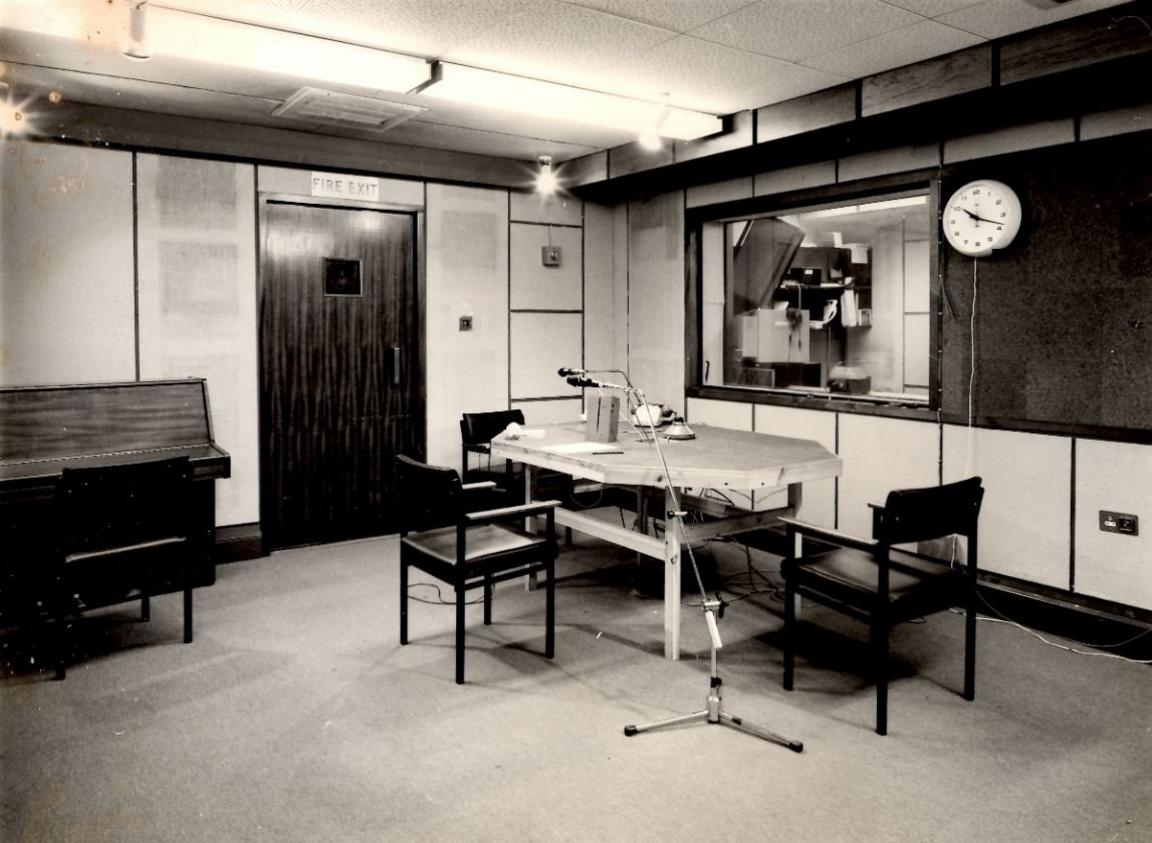
Plymouth Sound Radio changed owners and was rebranded to Heart in 2009
Of the 329 stations operating analogue local radio licences in the UK, more than half are now owned by three media companies, according to a 2018 report from the Media Reform Coalition.
Vital public service
With the majority of commercial stations reducing their local output, in some areas the BBC has been the only remaining local broadcaster.
And figures for the corporation's network of 39 stations have fallen from 10 million listeners per week in the 90s, to an all-time low of 5.6 million last year.
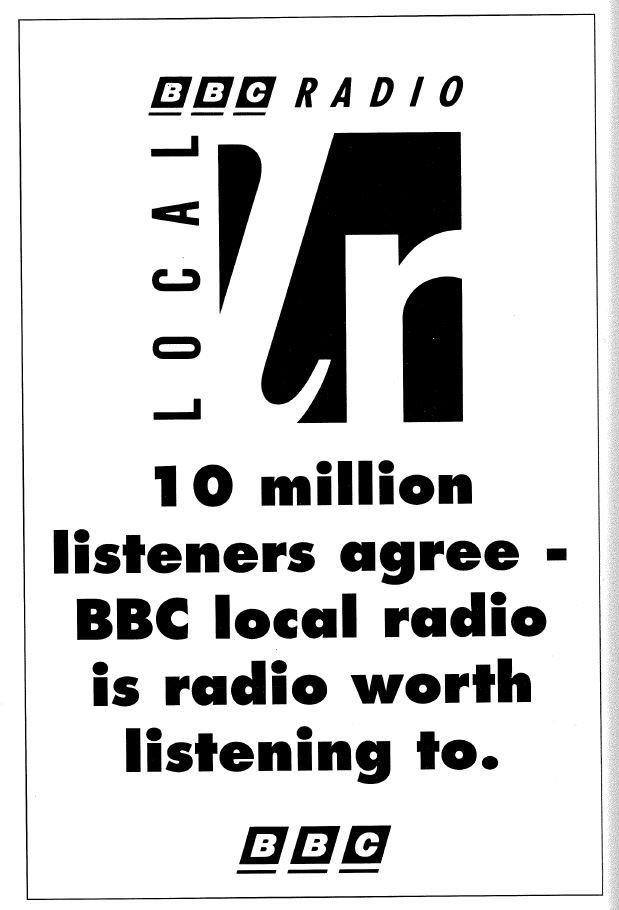
An advertisement for BBC local radio was produced in 1993
"Younger audiences are interested in local things so we have to deliver that material in the best possible way we can," said Chris Burns, head of audio and digital for BBC England.
She said that in the future content could be delivered in "bite-sized form" using tools such as the BBC Sounds service.
"We need to find new ways to reach these audiences while preserving the very best of what we already do."
Chris Burns is the head of audio and digital for BBC England
Burns says traditional linear BBC local radio stills provides a vital public service, such as during the Sheffield flooding in 2019, when the station staged a charity concert to help flood-hit residents.
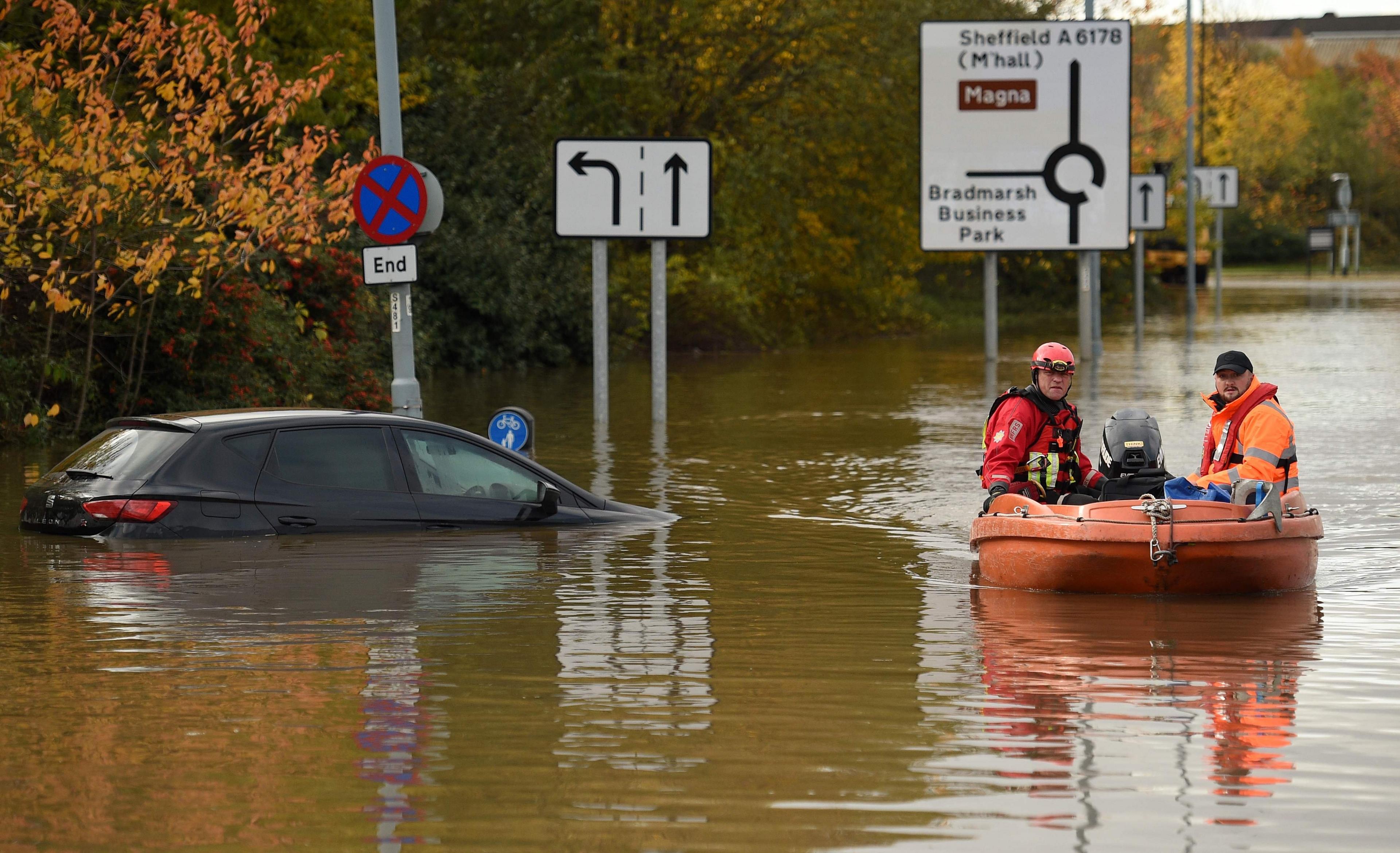
BBC Sheffield broadcast throughout the floods in 2019
"The TV cameras may have gone, but the reality is that the aftermath is still something people live through and that's what local radio can give you that I don't think anyone else can do," she says.
With advancements in technology it is increasingly possible for people to develop and run their own local stations.
Former local BBC and commercial radio presenter Duncan Warren and his son have set up Goldmine, which broadcasts on digital radio across Cornwall.
"56% of listeners in Cornwall are now listening on DAB so we have now become the main listening force," he explains.
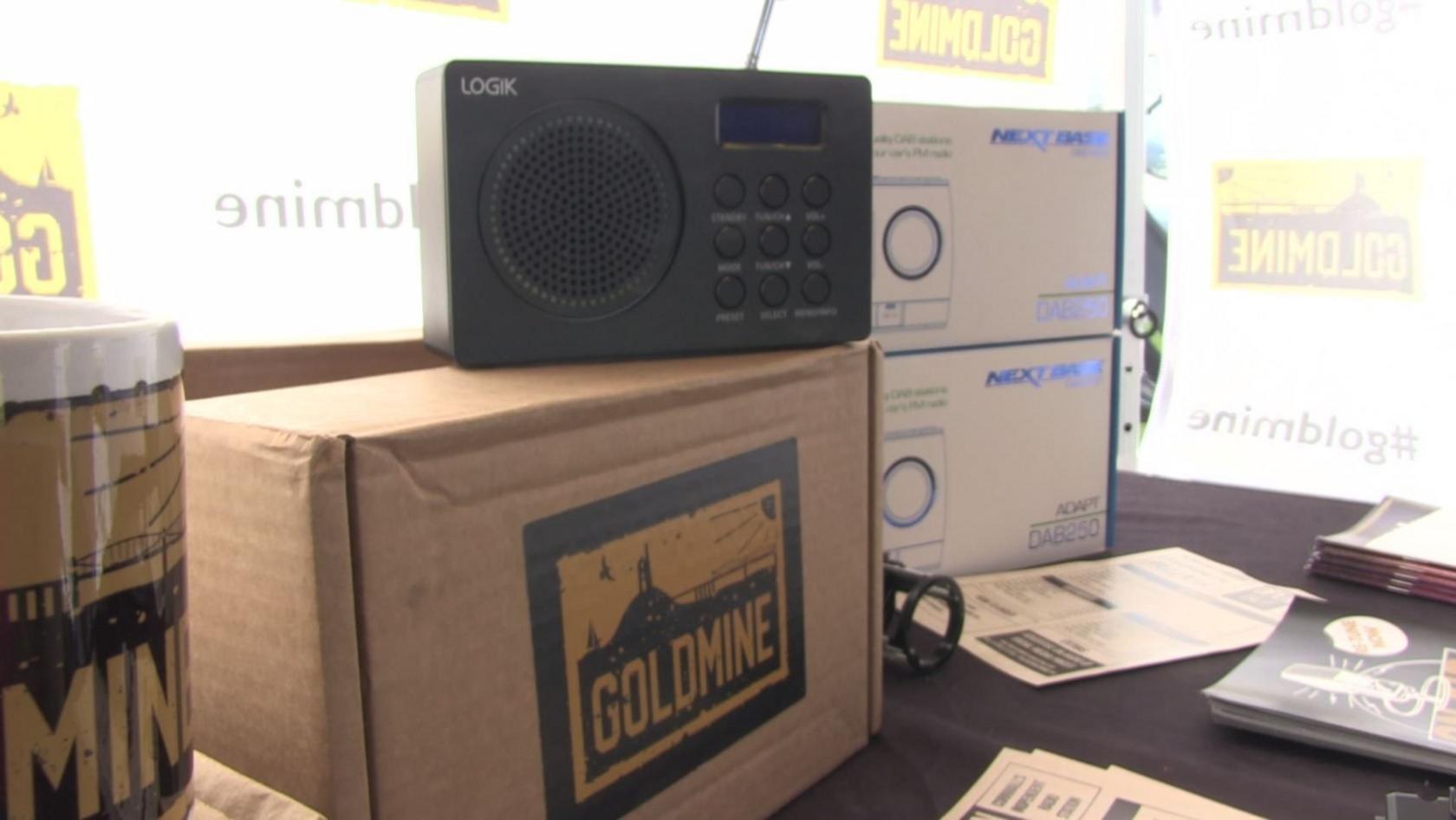
Goldmine broadcasts on digital radio across Cornwall
Stuart Clarkson from RadioToday has also been observing how community radio has expanded within the industry.
He said: "We've got a few hundred community radio stations dotted around the country and the plan is for even more of those to appear."
Southampton's Voice FM is one community radio station with a full schedule of local programmes.
Presenter Daniela Da Palma said they try to feature local guests and focus on issues that affect the local community, which makes them "very special".
Community radio stations can only raise 50% of their income from commercial sources
But many community radio managers have expressed frustration at Ofcom's funding restrictions, which mean the majority of stations can only raise 50% of their income from commercial sources.
Tony Gillham, manager of Black Cat Radio in St Neots, says that with more money they could "compete with the big boys on equal terms" and provide a much better service for the area.
He added: "The big boys are in it to make money, we're in it to make programmes, which is exactly where we started out in the 70s."
The Village Loudspeaker: What's Happened To Local Radio? was broadcast on 6 March 2020 and is now available on the BBC iPlayer.
- Published26 February 2019
